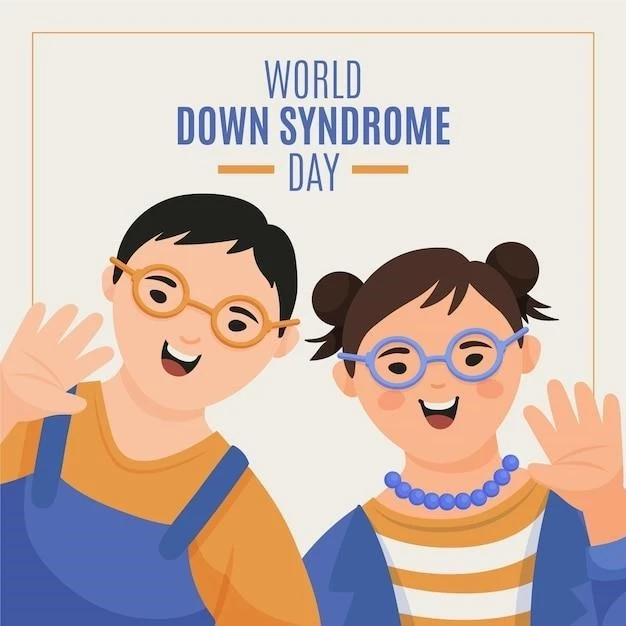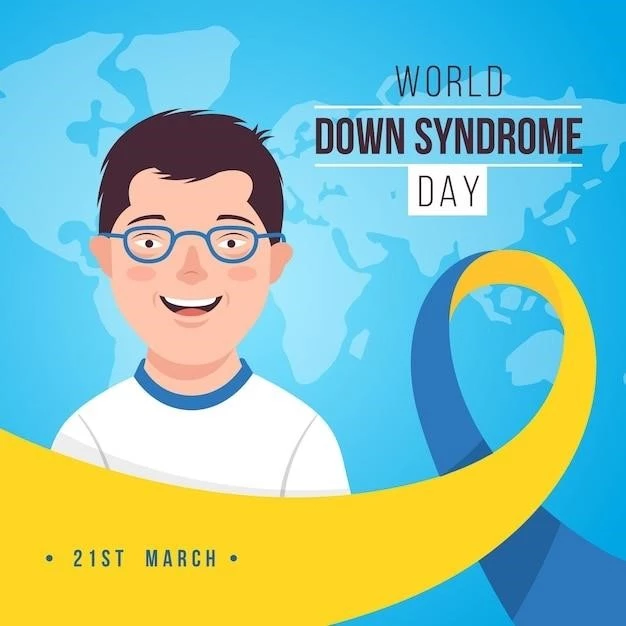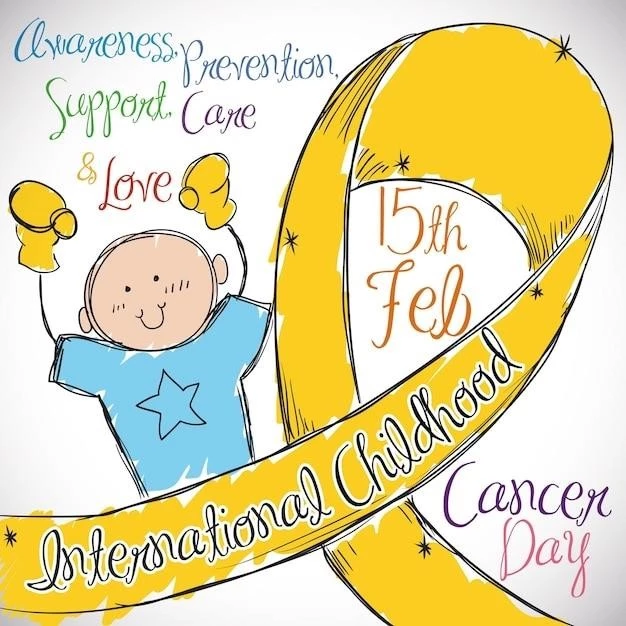Familial dysautonomia (FD)‚ also known as Riley-Day syndrome‚ is a rare‚ progressive genetic disorder...
Familial dysautonomia (FD)‚ also known as Riley-Day syndrome‚ is a rare genetic disorder that affects the development and survival of sensory‚ sympathetic‚ and parasympathetic neurons in the autonomic and sensory nervous system. FD is characterized by symptoms such as insensitivity to pain‚ poor growth‚ and autonomic crises. This condition is primarily found in individuals of Ashkenazi Jewish descent and is inherited in an autosomal recessive manner.
Definition and Background
Familial dysautonomia (FD)‚ also known as Riley-Day syndrome‚ is a rare genetic disorder that affects the development and survival of sensory‚ sympathetic‚ and some parasympathetic neurons in the autonomic and sensory nervous system. FD primarily occurs in individuals of Ashkenazi Jewish descent and is inherited in an autosomal recessive manner.
Riley-Day Syndrome presents with various physical symptoms‚ including insensitivity to pain‚ inability to produce tears‚ poor growth‚ gastrointestinal dysfunction‚ autonomic crises‚ recurrent pneumonia‚ altered pain sensitivity‚ altered temperature regulation‚ emotional instability‚ and sweating issues. These manifestations impact the overall health and well-being of individuals affected by this genetic disorder.
Neurological Symptoms
Neurological symptoms of Riley-Day Syndrome include sensory disturbances‚ neurological disorders‚ psychical anomalies‚ emotional instability‚ lack of tears‚ corneal anesthesia‚ and disturbances in autonomic nervous system functioning. Individuals may experience seizures‚ altered coordination‚ and episodes of high blood pressure and fever. These neurological manifestations significantly impact the quality of life for affected individuals.
Physical Symptoms
Riley-Day Syndrome presents various physical symptoms‚ such as insensitivity to pain‚ inability to produce tears‚ poor growth‚ gastrointestinal dysfunction‚ autonomic crises‚ recurrenpneumonia‚ altered pain sensitivity‚ altered temperature regulation‚ emotional instability‚ and sweating issues.
Genetic Component
Riley-Day syndrome‚ also known as familial dysautonomia‚ is an autosomal recessive genetic disorder primarily affecting individuals of Ashkenazi Jewish descent. This rare condition is caused by abnormal functioning of the autonomic nervous system and presents with characteristic emotional instability‚ decreased tear production‚ low blood pressure‚ excessive sweating‚ and skin blotchiness.
Ethnicity and Prevalence
Riley-Day Syndrome has a specific prevalence in people of Jewish descent‚ especially in Eastern Europe. Studies estimate its incidence at around one case per 3‚600 births. The disorder is more common in the Ashkenazi Jewish population‚ highlighting the influence of ethnicity on the prevalence of this rare genetic condition.
Diagnosis and Testing
Diagnosing Riley-Day syndrome involves a combination of genetic testing and clinical evaluation. Genetic tests can confirm the presence of specific genetic mutations associated with the condition‚ while clinical assessments focus on identifying characteristic symptoms and signs to provide a comprehensive diagnosis.
Genetic Testing
Genetic testing plays a crucial role in diagnosing Riley-Day syndrome. By identifying specific genetic mutations associated with this autosomal recessive disorder‚ healthcare providers can confirm the presence of the condition and guide appropriate management strategies. Additionally‚ understanding the genetic component of Riley-Day syndrome aids in genetic counseling for affected individuals and their families.
Clinical Evaluation
The clinical evaluation for Riley-Day syndrome involves a thorough assessment of symptoms which may include insensitivity to pain‚ poor growth‚ autonomic crises‚ gastrointestinal dysfunction‚ poor tear production‚ and emotional instability. Healthcare professionals conduct detailed examinations to confirm the presence of characteristic features associated with this genetic disorder.
Treatment and Management
Treating Riley-Day syndrome involves a comprehensive symptomatic care approach and a multidisciplinary management strategy. Symptomatic care focuses on alleviating specific symptoms‚ while a multidisciplinary approach involves various healthcare professionals coordinating to address the complex needs of individuals with this genetic disorder.
Symptomatic Care
Riley-Day syndrome management focuses on symptomatic relief to address specific symptoms associated with the condition. The treatment approach aims to alleviate discomfort and improve the overall quality of life of affected individuals through targeted interventions tailored to manage their unique symptom presentation.
Multidisciplinary Approach
The management of Riley-Day syndrome involves a multidisciplinary approach where healthcare providers from various specialties collaborate to address the complex needs of individuals affected by this genetic disorder. This coordinated effort ensures comprehensive care that considers the multiple facets of the condition and aims to enhance the overall well-being of patients.
Prognosis and Complications
The long-term outlook for individuals with Riley-Day syndrome involves potential complications that may vary depending on the severity of symptoms. Understanding these complications and their management is crucial for improving the quality of life for affected individuals.
Potential Complications
Complications associated with Riley-Day syndrome may include progressive neurological degeneration‚ autonomic crises leading to hypertensive vomiting episodes‚ recurrent pneumonia‚ altered pain perception‚ gastrointestinal dysfunction‚ altered temperature regulation‚ and emotional instability. These complications can impact the individual’s quality of life and require careful management strategies.
Long-term Outlook
Understanding the long-term outlook for individuals with Riley-Day syndrome is essential in managing the complex implications of the condition. With progressive neurological degeneration and potential complications‚ a comprehensive approach involving ongoing care and support is crucial to optimize the quality of life and well-being of affected individuals throughout their lifespan.

Research and Future Directions
Current studies and trials are investigating potential advancements in the treatment of Riley-Day syndrome. Emerging therapies aim to address the underlying genetic components and symptoms associated with this rare disorder‚ offering hope for improved management strategies in the future.
Current Studies and Trials
Ongoing research studies and clinical trials are exploring potential advancements in the treatment and management of Riley-Day syndrome. These investigations focus on developing novel therapies to address the underlying genetic components and alleviate the diverse symptoms associated with this rare genetic disorder‚ aiming to enhance the overall quality of life for affected individuals.
Emerging Therapies
Emerging therapies for Riley-Day syndrome are being developed to target the underlying genetic abnormalities and mitigate the diverse symptoms associated with this rare disorder. These novel treatment approaches offer potential advancements in managing the condition more effectively‚ aiming to improve the overall prognosis and quality of life for affected individuals.

Support Resources and Organizations
Support resources and organizations play a crucial role in providing assistance and guidance to individuals and families affected by Riley-Day syndrome. These groups offer valuable support‚ information‚ and advocacy initiatives to improve the overall quality of life for those impacted by this rare genetic disorder.
Patient Support Groups
As of the latest information available‚ Familial Dysautonomia (FD)‚ or Riley-Day syndrome‚ is a rare genetic disorder affecting sensory and autonomic nerves. The condition causes varied symptoms like insensitivity to pain and poor growth. The disorder is most prevalent in individuals of Ashkenazi Jewish descent and involves abnormal autonomic nervous system functioning. Studies and trials are ongoing to advance treatment‚ including emerging therapies to manage symptoms and genetic components effectively. This underscores the importance of dedicated support resources and organizations in enhancing the well-being of those affected.
Advocacy and Awareness Initiatives
Patient support groups focused on familial dysautonomia‚ also known as Riley-Day syndrome‚ play a vital role in offering assistance and guidance to individuals and families affected by this genetic disorder. These advocacy initiatives aim to raise awareness‚ provide educational resources‚ and promote research to advance the understanding and management of Riley-Day syndrome. Such initiatives create a supportive community for affected individuals and their families‚ fostering empowerment and access to valuable information and resources.
